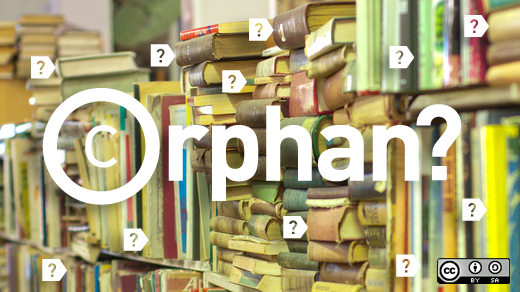Copyright lasts for a long time. Because there’s formal registration requirement, owners are often unlocatable. Their works become orphan works. The issue of orphan works is one of the most pressing copyright law and policy problems of the 21st century.
My co-author Mario Bouchard and I were the first experts to empirically study and then explain Canada’s system for licensing orphan works. As the formal General Counsel and Legal Counsel (respectively) to the Copyright Board of Canada, we understand these issues like very few others do.
How Copyright Licensing of Orphan Works Happens in Canada
Our commissioned study for the Copyright Board, later developed into a peer reviewed article, “Canada’s ‘Orphan Works” Regime: Unlocatable Owners and the Copyright Board of Canada,” marks the beginning of an analysis of the orphan works problem in Canada. It also contributes to growing debate about the issue worldwide, since Canada is often held up as an example to follow or avoid.

The term ‘orphan work’ has been used to describe an increasingly problematic phenomenon within the realm of copyright law wherein the owner of a copyrighted work cannot be identified and/or located by someone who wishes to use that work. When this occurs, the creative endeavours of individuals, businesses, and non-profit organizations are frustrated, stifling economic and social progress. Furthermore, it deprives the missing owner of compensation and puts the user at risk of infringement.
Canada has tried to combat this problem via section 77 of the Copyright Act which allows the Copyright Board to issue licenses to applicants who have made reasonable efforts to locate owners.
We offer the first detailed empirical review of the Canadian Copyright Board’s system of dealing with the orphan works problem through the section 77 licensing process, and outline the potential practical problems associated with that process.
The Copyright Board must exercise a significant amount of discretion when deciding to grant licenses to applicants, and formal rules have yet to be outlined. Some relevant factors for consideration include the nature of the applicant, the nature of the proposed use, and the commercial value of the proposed use.
There is currently no consensus regarding whether royalties should be paid, and if so, to whom, and how much. In addition to the royalty debate, there is the question of what role collective societies should play in the area of orphan works.
While the empirical data offers evidence that the section 77 process has enjoyed some level of success, the analysis reveals that there are still many challenges and complications that remain unresolved.
Through our analysis, we lay the foundation for further research in the area of orphan works and provide a basis for recommendations that could improve the efficacy of Canada’s current regime.